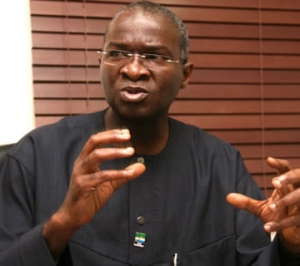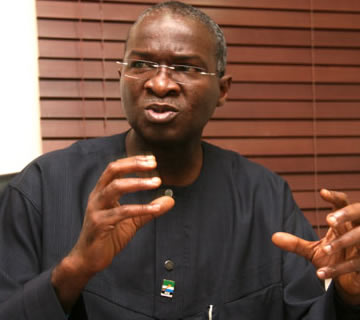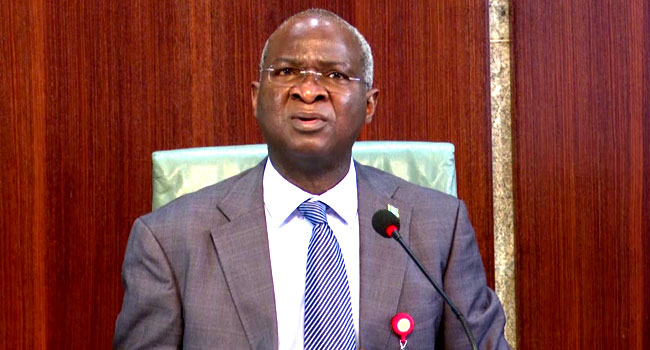
Fashola, who spoke at the City Hall, Lagos, venue of the Public presentation a historic book on Lagos, “Possession- A History of Law and Justice In The Crown Colony of Lagos; 1861 – 1906”, authored by former Attorney-General and Commissioner for Justice of the State, Mr. Olasupo Shasore SAN, said the dearth of such records and the lack of documentation of historical events in the country have impacted negatively on upcoming generations who know little or nothing of their origin or learn of historical events in their country from foreign institutions.
Citing the example of young people who know little or nothing about the 30-month Nigerian Civil war, the Governor said the need to fill the gap informed his establishment of a Records and Archives Bureau in the State as a centre where citizens can submit memorabilia, documents, photographs or diary adding, “We will gladly receive it and acknowledge it and keep it for posterity”.
“It is a library of sorts and you can go there at Magodo and register as a member and use the facilities and they will issue you with an identity card”, the Governor said adding that he is already a member and has been issued with an Identity Card Number 001 as Governor of the State.
He said because of ignorance of the history of Lagos most people make spurious assumptions and statements that offend the sensibility of Lagosians such as the one by the Federal Government saying it has sold the Tafawa Balewa Square or the statement that Lagos is flooding because of the Eko Atlantic Project.
According to the Governor, “When people say today that the Eko Atlantic Project is causing flooding because we are reclaiming land from the sea, I say they do not know the history of this land because from Modupe Osikoya Street now, which is the road in front of the Bar Beach, you needed to walk a distance of two to three kilometres before you saw water when I was a child”.
Describing those who say they have sold the Tafawa Balewa Square as wallowing in absolute ignorance, Fashola, who declared that the Square “can never be sold”, pointed out that the place used to be part of the land that belonged to the King of Lagos who was a Sovereign before the conquest and possession of Lagos by the British.
“It became a Crown Land administered by the British Crown and at the end of the Colonial Era it passed on to the Federal Republic of Nigeria and when Lagos was created as one of the first 12 states of the country in 1967, it became State Land and all of the lands the Federal Republic of Nigeria inherited from the Government of the United Kingdom were handed over to each of the states in which those lands were and Tafawa Balewa Square then metamorphosed from Race Course to Tafawa Balewa Square”, he said.
He maintained that the only legislation that exists today is the Tafawa Balewa Square Management Act by which the Federal Government was given managerial power as caretaker or agent and not owner of the Tafawa Balewa Square.
Reiterating the importance of books in the preservation of history of any nation, Governor Fashola listed two of such books, one on the Nigerian Civil War by General Alabi Yisama, which, he said gave a firsthand experience of those who fought the war and the other about one James Labulo which tells of the important role Lagos had to play in the establishment of Cocoa as a farm produce in Nigeria and how CMS Grammar School evolved as land given by a prominent Lagosian.
The Governor praised Mr. Shasore for the painstaking devotion with which he wrote the book saying, “unlike many history books where only the very subjective accounts of the historian is what we have to deal with, Supo has tried, perhaps inescapably, to remain a lawyer, supporting every position he has taken in the book by facts, evidence, documents and judicially certified documents”.
According to the Governor, one of the most important facts the book has established is the sovereignty of Lagos before the coming of the British and the subsequent possession and conquest of Lagos adding that although more races including African, Asians and Arabs now occupy the streets of London than the Englishman, there were original Londoners before those people came.
He said what has happened in London has also happened in Lagos where some hitherto rural villages have become a highly urbanized, commercial and multi-ethnic centre, adding, “Nothing is wrong with that because, perhaps, in another 500 years this place will not be like this”.




